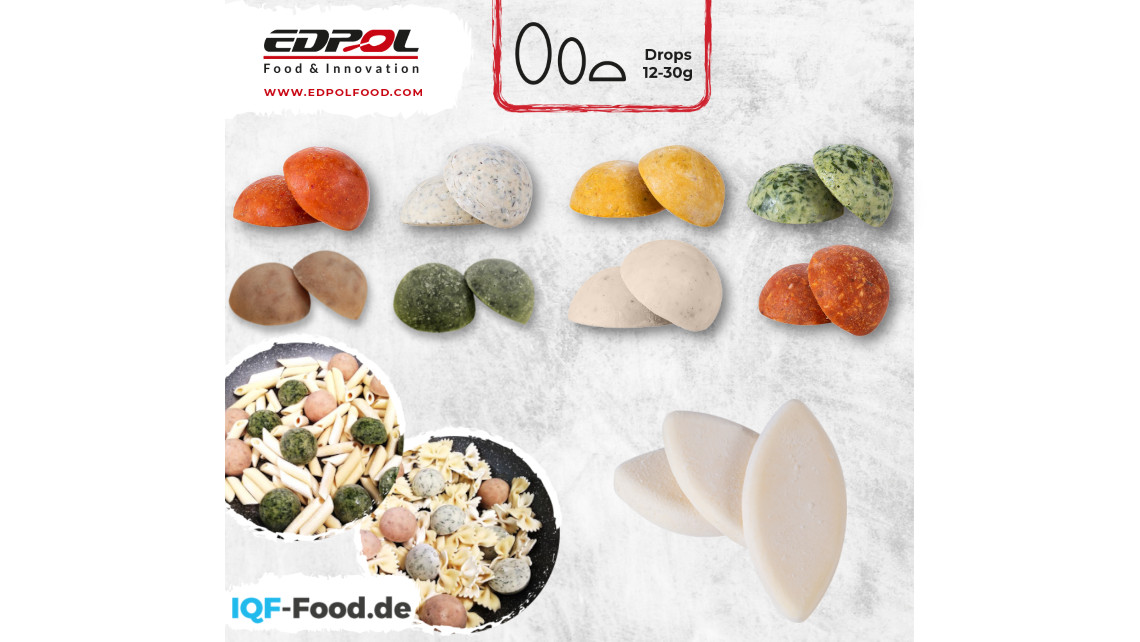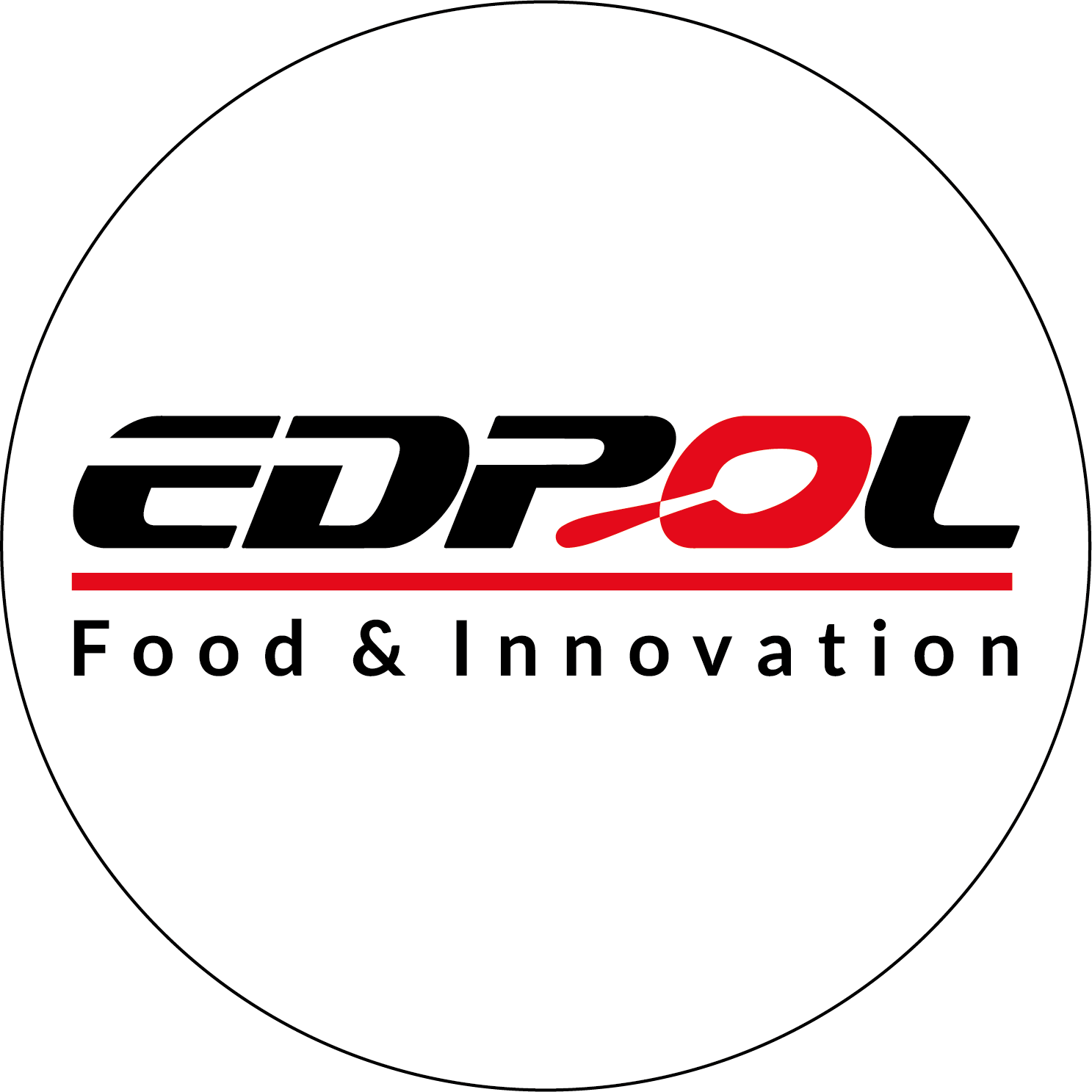The frozen products sector is growing. According to the forecast, the frozen food market in 2022–27 will record an increase of 4,3%.
Frozen sauces not only for gastronomy
Statistics show that frozen food was exceptionally resistant to the crisis related to the COVID-19 pandemic. Retail frozen products emerged from the pandemic in better shape than room-temperature and refrigerated food, according to the British Frozen Food Federation, published in the ‘Frozen Food Report 2022’. The overall market value increased by as much as 13.2% compared to pre-pandemic levels. The reason was closure of the catering market and widely practiced remote work during which employees consumed frozen lunch dishes. An interesting fact is that the only category that achieved greater increase in sales than frozen food was alcohol which consumption has increased due to the closure of pubs and restaurants.
The use of frozen sauces in the kitchen
Consumer research shows that there is a great interest in frozen products. More than a quarter (26%) of 18-24 year old consumers buy now more frozen substitutes than fresh products. Almost one third (31%) try innovations such as frozen meat analogues. As many as 40% of post-millennial people (generation Z) considers frozen food as fashionable and would willingly buy frozen vegetables, fruit, meat or fish. One third of the total British population is more likely to buy frozen food, whereas, 21% uses frozen products in their daily cooking. 72% of meals are now eaten at home, compared with 60% before the pandemic - a key opportunity for this category. Homeworkers began to appreciate the benefits of frozen food such as quality, convenience and health benefits (BFFF, 2022).
Advantages of frozen sauces
What is the phenomenon of frozen food? Frozen food enables to eat high-quality meals while reducing your carbon footprint and food waste. Freezing preserves the product for many months in a natural way - without use of preservatives. In addition, the pandemic contributed to the development of frozen food through the increased demand for easy-to-prepare, home-made meals that are in line with the comfort food trend. What is more, frozen meals inspired by world cuisines - giving a substitute for culinary travel - also gained popularity during the lockdown.
Private label IQF sauces
Retail chains are constantly looking for products that will help them stand out and gain consumer loyalty. This is why private label is a driving force of innovation also in the frozen food sector. The key private label trends in this category are premium, vegan and "… free" (BFFF, 2022).
Vegan and vegetarian sauces
The biggest long-term trend is the growing popularity of vegan and meatless products. In the UK, the development of new vegan products is flourishing to the point where, according to the Mintel Global New Products Database (GNPD), in 2018 the UK was the leader of the vegan NPD, toppling Germany in first place. According to a study by Meatless Farm UK, 42% of consumers says they are limiting their meat consumption. Another 11% has eliminated meat from their diet. It is predicted that the sector of frozen vegetable dishes will grow significantly as it is in line with the global health trend. The value of the frozen plant market is growing four times faster than the market of meat analogues. If growth trend continues at the current level, the value of plant foods will overtake meat analogues in mid 2025. In addition to vegan dishes, the frozen food segment is experiencing a growing trend of gluten-free products. The phenomenon is particularly evident in vegan frozen burgers. If current trends continue, gluten-free burgers will account for 38% of total frozen burgers within five years. Premium-quality frozen foods are also gaining strength, allowing consumers to feel at home as in a good restaurant for a fraction of the price (BFFF, 2022).
Manufacturer of IQF sauces to frozen meals
EDPOL Food & Innovation's IQF offerings dedicated to frozen ready meals include frozen (IQF) sauces portioned in hemispheres or ellipses, butter mixes, frozen broths and cream soups, as well as, fruit pulp in mini portions (drops) 15g and 30g. Thanks to the innovative method of shock freezing of single fractions of products (IQF) - in the case of frozen sauces of hemispheres or ellipses - their high nutritional value as well as an attractive appearance and taste are preserved. Frozen sauces are used in a wide range of ready meals, incl. frozen vegetables for the pan, frozen pasta dishes, with groats or rice. Portion of frozen sauces also complement frozen seafood dishes, ready-made meat dishes, and also become the filling of de volaille chops. Portions of frozen vegetable, beef or poultry broths are dedicated to frozen vegetable mixes for soup. EDPOL Food & Innovation offers also frozen cream soups, such as tomato cream, broccoli cream, pumpkin cream, and Korean kimchi. In addition, an interesting proposition are frozen fruit pulp for making smoothies or refreshing drinks.









